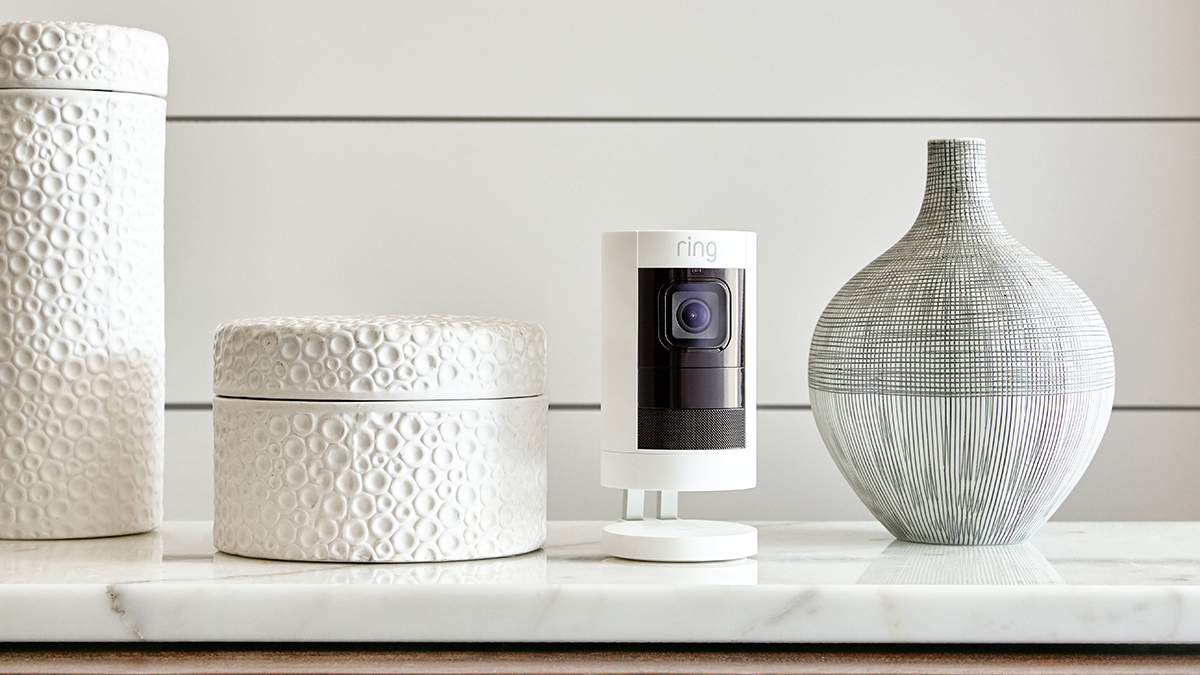Ring finally addresses its privacy concerns - here's how to make sure you're protected
Two-factor authentication is now compulsory for all users

Security camera company Ring has been plagued with privacy concerns in recent months, following a high-profile data breach and fears that criminals could hack their devices – and now the brand finally seems to be doing something about it.
If you have a Ring security camera or video doorbell, you'll now need to enable two-factor authentication when you sign in; this is mandatory for all users, and you won't be able to access your account without it.
- Read our Ring Video Doorbell 2 review
- Renting? Check out our Ring Door View Cam review
- Your Ring security camera probably won't catch a burglar
The use of two-factor authentication adds an extra layer of security to your Ring account, and it means that you will only be able to gain access by providing another piece of information aside from your existing password – you'll be prompted to do this when you next sign in.
In this case, the second piece of information will be a randomly-generated code that will be sent to your mobile phone. To access your account, you'll need to enter this code when you sign in, alongside your password.
Ring says that, while this introduces another step to the login process, it's worth it for "the extra security it brings". On the Ring support website, the company explains: "If someone were to gain access to your password, for example, they still would not be able to access your Ring account without your trusted phone to receive the randomly generated code."
If you receive a code that you haven't requested, Ring says this could indicate that someone has attempted to compromise your account, and recommends that you change your password as soon as possible.

About time
While Ring has always offered the option of two-factor authentication, this is the first time that the company has made it mandatory for all its users – and after increasing security concerns surrounding the security camera brand, some would say it's about time, too.
Sign up for breaking news, reviews, opinion, top tech deals, and more.
Critics have slammed the Ring system as "an unmitigated disaster" for privacy, while some have suggested that Ring is building up a for-profit private surveillance network – and following its partnership with police departments across the US, it's been accused of coaching police on how to successfully obtain footage without a warrant.
In December, a data breach that exposed the personal data of more than 3,000 device owners compounded these fears, just weeks after a hacker was able to break into the Ring security camera in a child's bedroom, taunting the eight-year old girl, playing music, and encouraging her to "mess up her room and break her television".
Ring isn't the only company to have suffered from bad press, however. In September last year, Google was forced to improve the security of its Nest devices after hackers gained access to an Illinois family's security camera, shouting racial slurs, and turning up the temperature on their smart thermostat.
So, aside from the new two-factor authentication feature, what else can you do to protect your Ring gadgets (and any other smart home devices for that matter)? Firstly, you need to make sure that you have a strong password, that's unique to your Ring account – reusing the same login credentials for different accounts and sites makes you more vulnerable to being hacked.
You can also check if your information has already been accessed. Using a website such as Have I Been Pwned will show you if your credentials have been included in any data breaches over the past several years – if they have, you'll need to change your logins right away.

Olivia was previously TechRadar's Senior Editor - Home Entertainment, covering everything from headphones to TVs. Based in London, she's a popular music graduate who worked in the music industry before finding her calling in journalism. She's previously been interviewed on BBC Radio 5 Live on the subject of multi-room audio, chaired panel discussions on diversity in music festival lineups, and her bylines include T3, Stereoboard, What to Watch, Top Ten Reviews, Creative Bloq, and Croco Magazine. Olivia now has a career in PR.